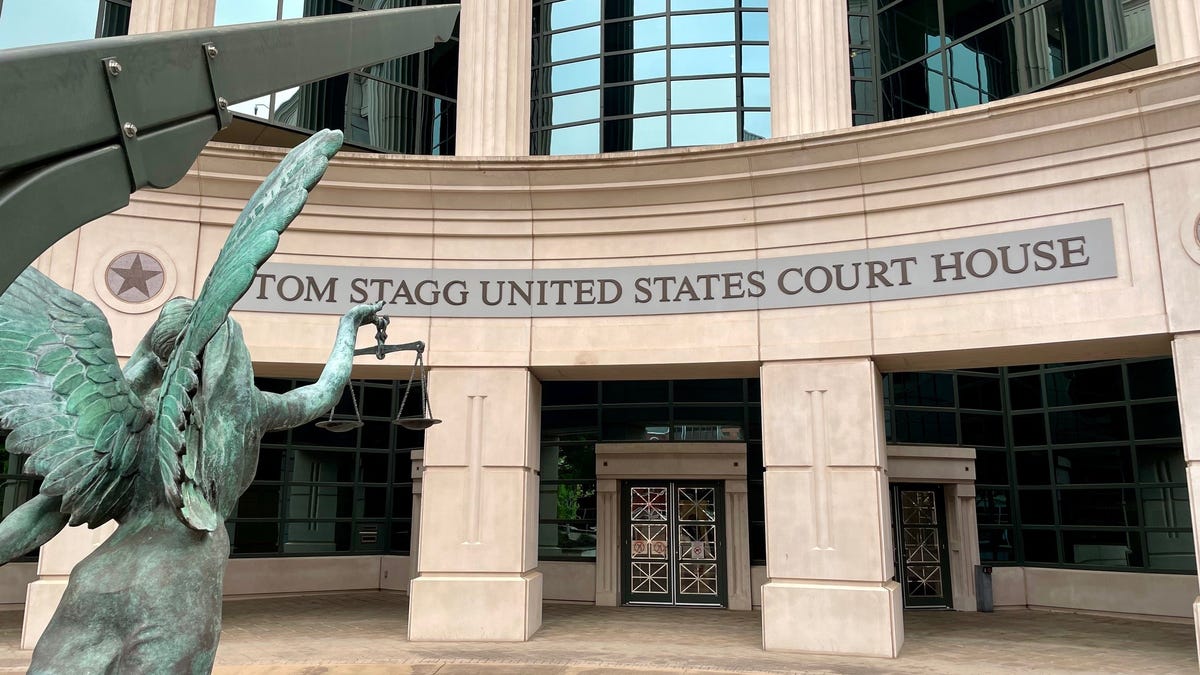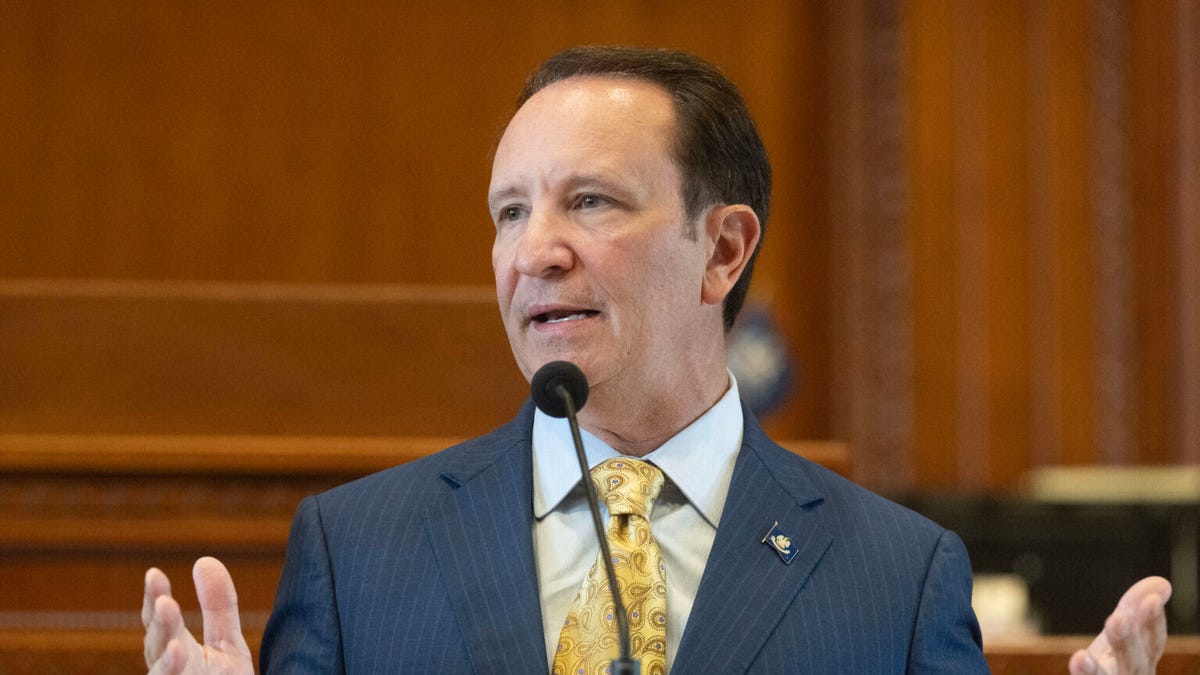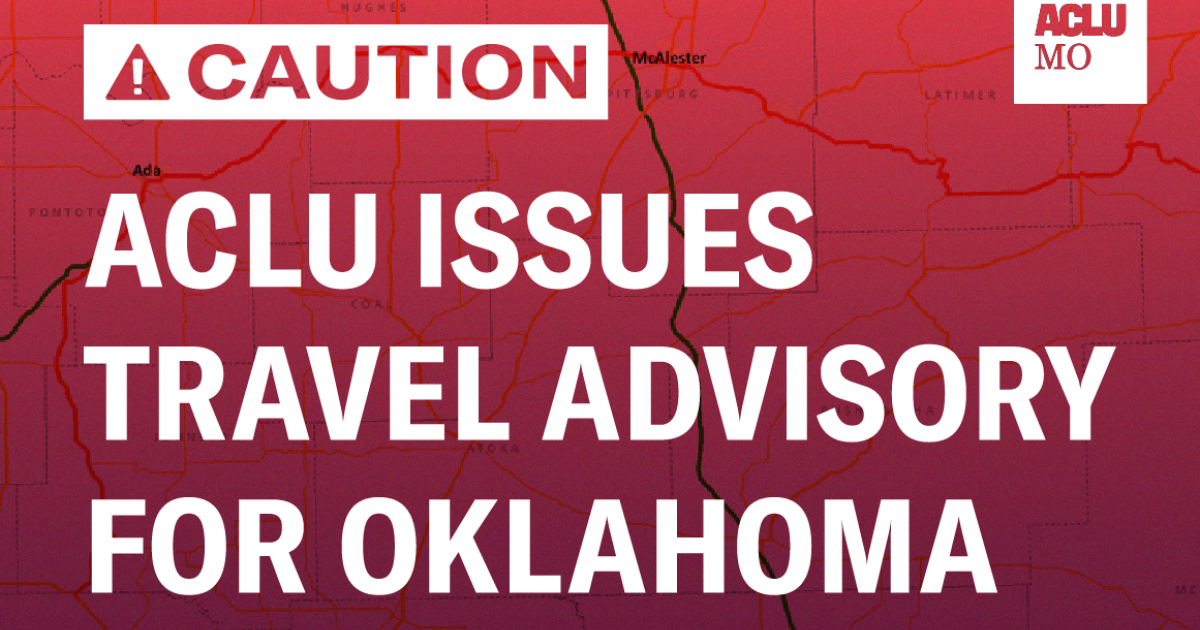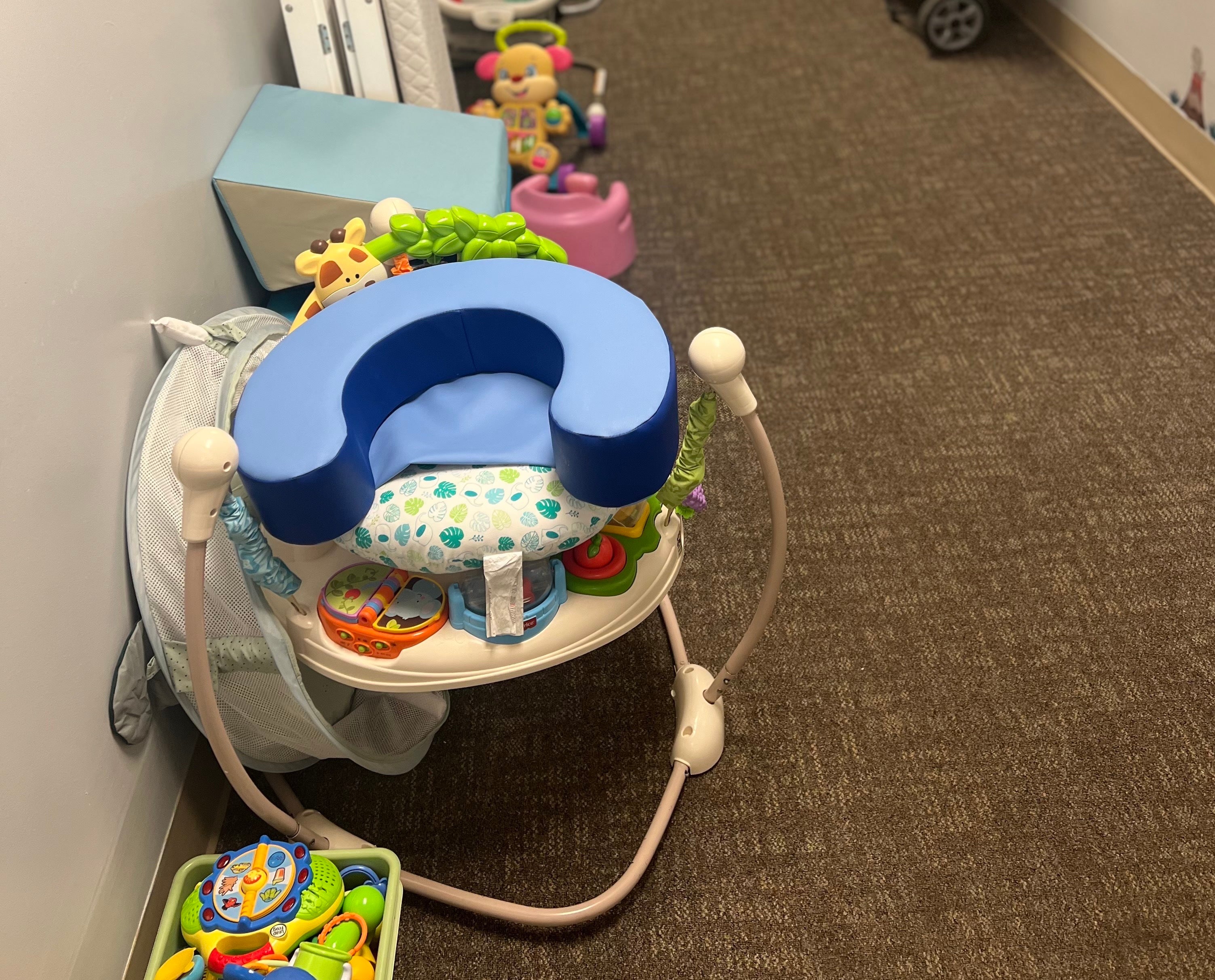Louisiana
Slow down the con-con train • Louisiana Illuminator

This weekend marks 50 years since Louisiana voters ratified the 1974 state constitution. If Gov. Jeff Landry and his financial backers have their way, it might also be the last time we can celebrate the anniversary of our state’s foundational charter.
With three whole months of governing under his belt, Landry is demanding that state legislators, along with 27 of his hand-picked appointees, convene for a constitutional convention that could have a generational impact on how children are educated, our coast is protected, the taxes we pay and the rights that all Louisianans enjoy.
He wants all of this accomplished in just two weeks – from May 20 to June 3 – and to happen at the same time that the Legislature is wrapping up its work on hundreds of other bills moving through the process.
This rushed convention proposal is a grotesque overreach that doesn’t give ordinary citizens nearly enough time, information or input into what is being done in their name.
The constitutional convention should come as a big surprise to anyone who followed Landry’s campaign for office last fall. Backed by big-money donors and the endorsement of Donald Trump, Landry ran as a genial Cajun who hates crime, loves fossil fuel extraction and would move the state in a more conservative direction.
He barely mentioned the constitution during the fall campaign. And the governor still hasn’t said what he actually wants to change about the state’s founding charter – or why it has to be changed before June 3.
Landry’s legislative allies have tried to allay fears by claiming they simply want to shrink the constitution by taking things out and putting them into law, where they can be changed more easily by a simple vote of the Legislature. They promise a limited convention that will focus on rewriting the articles that govern taxes and spending.
Once lawmakers convene a constitutional convention, however, anything and everything could be on the table for debate. The stakes are pretty major.
The constitution ensures that the state sales tax can’t apply to prescription drugs, groceries and home utilities. The constitution safeguards funding for coastal protection and restoration, so the Legislature can’t raid those funds when there’s a budget crunch. It protects the retirement security of teachers, school bus drivers and other public employees, who don’t pay into the Social Security system and rely on their public pensions to sustain them in retirement.
GET THE MORNING HEADLINES DELIVERED TO YOUR INBOX
The constitution protects funding for public schools, and ensures that state dollars are distributed fairly among school districts through the Minimum Foundation Program formula so that politicians don’t get to divide or divert the money. It protects Medicaid dollars that flow to hospitals and nursing homes, and salary stipends for police, firefighters and other local first responders.
The constitution protects the homestead exemption, which keeps the first $75,000 of your home’s value from being subject to property taxes.
All of these protections could be on the table. Removing these protections from the constitution and placing them in statute makes them vulnerable to change. All it would take to tax your prescriptions, or remove the homestead exemption, is a vote of the Legislature.
The last time Louisiana’s constitution was rewritten was in 1973, and it was a much longer, more orderly and transparent process. Edwin Edwards had just been elected governor, and called for a constitutional convention during his campaign. The Legislature made sure the voters had a voice, passing a bill that called for the election of 105 delegates – one from each House district – in the 1972 elections (the governor, then as now, had 27 appointments).
The convention itself lasted a whole year – from January 1973 to January 1974 – with delegates sometimes meeting five days a week. Landry, by contrast, wants all this business wrapped up in just TWO weeks, starting May 20.
No one would dispute that our constitution has grown long and complex in the last 50 years. The Public Affairs Research Council tells us it’s the fourth-largest constitution in the country – at more than 77,000 words. It’s been amended 216 times in the past 49 years. There is something in there for everyone to hate.
But each of those amendments is there for a very good reason: At some point during the last half century, two-thirds of the House and Senate, and a majority of Louisiana voters, decided that it was worth putting in the state constitution.
People can disagree on whether the constitution should be overhauled – which provisions should stay and what should go. But a process this important shouldn’t be rushed through in two weeks, with no election mandate and no opportunity for the public to weigh in by picking delegates. An undertaking this important deserves at least as much time, scrutiny and public input as the last time.

Louisiana
Louisiana ranked worst state as pollution, poverty, violence among factors in U.S. News report
Louisiana is ranked last – again – in the U.S. News and World Report’s 2024 Best States report, which for the second consecutive year cited an atmosphere of violent crime, poisonous industrial pollution, poverty and a dwindling population among the state’s hardships.
Utah was ranked as the top state. Texas was No. 29 as Louisiana’s highest-ranking contiguous neighbor, while Mississippi ranked No. 48 and Arkansas No. 47.
The U.S. News report ranked Louisiana in the following categories: crime/corrections, 50; economy, 49; education, 47; fiscal stability, 41; healthcare, 46; infrastructure, 49; natural environment, 49; and opportunity, 44.
Among the most alarming statistics:
∎ Residents suffer 629 violent crimes per 100,000 people, 65% higher than the national average.
∎ Louisiana has a net migration of negative 0.6%, while the average state is attracting 0.3% more population.
∎ Preventable hospital admissions are 27% higher in Louisiana than the national average, while nearly half of the population – 40% – is obese.
∎ Nearly one-third of Louisiana’s roads – 29% – are in poor condition compared to 18% nationwide. The state is 49th in Internet access.
∎ Louisiana factories release 3,134 pounds of industrial toxins per square mile compared to a national average of 937.
It’s the latest in a series of studies listing Louisiana as the worst or among the worst states in key quality of life areas.
About one in five Louisianians live in poverty.
Louisiana women in particular face bleak circumstances on nearly every front, from poverty to life expectancy to education, according to a study released earlier this year.
The WalletHub study ranked Louisiana 50th among states and the District of Columbia as best places for women, ahead of only Oklahoma.
Last spring a WalletHub study ranked Louisiana as the worst state in America for working mothers, with data showing moms here are shortchanged on everything from pay to childcare.
And last year’s Kids Count report from the Annie E. Casey Foundation ranked Louisiana 49th for child well-being.
More: Louisiana rejects rape, incest abortion exceptions for pregnant children, keeps strict ban
Greg Hilburn covers state politics for the USA TODAY Network of Louisiana. Follow him on Twitter @GregHilburn1.
Louisiana
Federal judges give Louisiana lawmakers until June 3 to create suitable new congressional map

NEW ORLEANS (WVUE) – Louisiana lawmakers have less than a month to come up with a new congressional map or a panel of judges will draw it for them.
That mandate comes from a three-person panel of federal appellate judges who threw out the legislature’s newest map just last week.
Time is short because district lines need to be set in time for fall congressional elections.
The panel of judges gave state lawmakers until June 3 to present an acceptable congressional map, or have one imposed on them instead.
The panel last week rejected a map passed during a January special legislative session, which would have created Louisiana’s second Black-majority district. The panel found by a 2-1 vote that race was the predominant factor in that map’s boundaries, which the judges said violated the equal protection clause of the 14th Amendment.
Meanwhile, the judges will be making their own remedial plan, in case the lawmakers fail to act in time.
A spokesperson for Secretary of State Nancy Landry, however, said the June 3 deadline is too lax. The office said May 15 is its hard deadline to implement a map for the November election ballots.
Attorney General Liz Murrill said the state is appealing to the US Supreme Court to have the rejected map reinstated.
“Today, three federal judges who never spent a day running an election have ignored uncontradicted testimony that we need a map by May 15, and once again turned Louisiana’s congressional elections upside down,” Murrill said in a statement released Tuesday. “That’s on the tails of another federal judge, the 5th Circuit, and the Supreme Court doing it in the last round of congressional elections.
“At a time when concerns about election integrity are higher than ever, this ruling threatens the ability of the Secretary of State to conduct a stable and fair election in a presidential election year in Louisiana. We will be heading this week to the US Supreme Court.”
Davante Lewis, the Public Service Commissioner for the 3rd district of Louisiana, said Murrill’s statement is nonsensical and accused the AG of using bombastic language.
Lewis said the court gave the secretary of state and the state an opportunity Monday night to file briefs explaining their concerns about moving the deadline past the original date of May 15. However, he said the judges felt their testimony was not compelling, because both had mentioned in other cases they could have a map as late as May or early June.
Lewis said Louisiana will have a map in place before November. But what that map looks like is still up in the air.
“Everyone wants a map that is fair and just to the people of Louisiana, that adequately represents the population and gives every Louisianan the opportunity to have a member of congress of their choosing,” Lewis said.
“How you get there varies. There are multiple ways you can get there. I think what we have to do at this moment is keep our eyes on the prize that a fair map is needed. And, whatever the courts do, that they ensure that all Louisianans are fairly represented and that this legal strategy and legal confusion does not end in another election of people not having their voices adequately represented in Washington DC.”
See a spelling or grammar error in our story? Click Here to report it. Please include the headline.
Subscribe to the Fox 8 YouTube channel.
Copyright 2024 WVUE. All rights reserved.
Louisiana
Louisiana lawmakers reject adding exceptions of rape and incest to abortion ban
Despite pleas from Democrats and gut-wrenching testimony from doctors and rape survivors, a GOP-controlled legislative committee rejected a bill Tuesday that would have added cases of rape and incest as exceptions to Louisiana’s abortion ban.
In the reliably red state, which is firmly ensconced in the Bible Belt and where even some Democrats oppose abortions, adding exceptions to Louisiana’s strict law has been an ongoing battle for advocates — with a similar measure failing last year. Currently, of the 14 states with abortion bans at all stages of pregnancy, six have exceptions in cases of rape and five have exceptions for incest.
“I will beg (committee) members to come to common sense,” Democratic state Rep. Alonzo Knox said to fellow lawmakers ahead of the vote, urging them to give approval to the exceptions. “I’m begging now.”
Lawmakers voted against the bill along party lines, with the measure failing 4-7.
A nearly identical bill met the same fate last year, effectively dying in the same committee. In the hopes of advancing the legislation out of committee and to the House floor for full debate, bill sponsor Democratic state Rep. Delisha Boyd added an amendment to the measure so that the exceptions would only apply to those who are younger than 17. However, the change was still not enough to sway opponents.
“We have cases here in Louisiana with children being raped and then subjected to carrying a child to term,” Boyd, a Democrat who has told her own mother’s story in an effort to fight for passage of the bil l. “I hope we take a look at the fact that this is to protect the most vulnerable, our children.”
Boyd said she will continue to try to get the bill onto the floor, possibly asking the House chamber to vote to bypass the committee. However, the technique is rarely successful for Democrats in the Legislature where Republicans hold a supermajority.
While most of those who voted against the bill did not give a reason for their vote, GOP state Rep. Dodie Horton offered her thoughts, saying that while she believes convicted rapists should receive the maximum penalty possible, she can’t in good conscience allow for abortions. She described the fetuses as “innocent children.”
“I think we should punish the perpetrator to the nth degree, I’d love to hang them from the high street if it was in my power to do so. But I cannot condone killing the innocent,” Horton said.
As in multiple other Republican states, Louisiana’s abortion law went into effect in 2022 following the U.S. Supreme Court ruling that overturned Roe v. Wade, ending a half-century of the nationwide right to abortion. The only exceptions to the ban are if there is substantial risk of death or impairment to the mother if she continues the pregnancy or in the case of “medically futile” pregnancies — when the fetus has a fatal abnormality.
Democrats have repeatedly fought — and failed — to loosen the law by clarifying vague language, abolishing jail time for doctors who perform illegal abortions and adding exceptions.
“It’s disgusting to me that we have a society where we can’t make exceptions in a situation where a young girl’s innocence has been taken away in the most vile way… and now she’s impregnated and somebody, somewhere, wants to force a nine, 10, 11, 12, 13-year-old child to have a baby for the monster that took away her innocence?” Knox said.
The bill attracted dozens of people to testify, including rape survivors who shared their own stories and doctors who argued that their hands are tied by the current law.
OB-GYN Dr. Neelima Sukhavasi told lawmakers that since the abortion ban has gone into effect, she and other colleagues have delivered babies who are birthed by teenagers who have been raped.
“One of these teenagers delivered a baby while clutching a Teddy Bear — and that’s an image that once you see that, you can’t unsee it,” Sukhavasi said.
In 2021, there were 7,444 reported abortions in Louisiana, according to the U.S. Centers for Disease Control and Prevention. Of those, 27 were obtained by people younger than 15. Nationwide, 1,338 pregnant patients under 15 received abortions, according to the CDC.
A study released by the Journal of the American Medical Association found that between July 2022 and January 2024, there were more than 64,000 pregnancies resulting from rape in states where abortion has been banned in all or most cases.
-

 Politics1 week ago
Politics1 week agoHouse Republicans brace for spring legislative sprint with one less GOP vote
-

 World1 week ago
World1 week agoAt least four dead in US after dozens of tornadoes rip through Oklahoma
-

 Politics1 week ago
Politics1 week agoStefanik hits special counsel Jack Smith with ethics complaint, accuses him of election meddling
-

 Politics1 week ago
Politics1 week agoAnti-Trump DA's no-show at debate leaves challenger facing off against empty podium
-

 News1 week ago
News1 week agoVideo: Police Arrest Columbia Protesters Occupying Hamilton Hall
-

 News1 week ago
News1 week agoAs student protesters get arrested, they risk being banned from campus too
-

 World1 week ago
World1 week agoNine on trial in Germany over alleged far-right coup plot
-

 Politics7 days ago
Politics7 days agoThe White House has a new curator. Donna Hayashi Smith is the first Asian American to hold the post

















